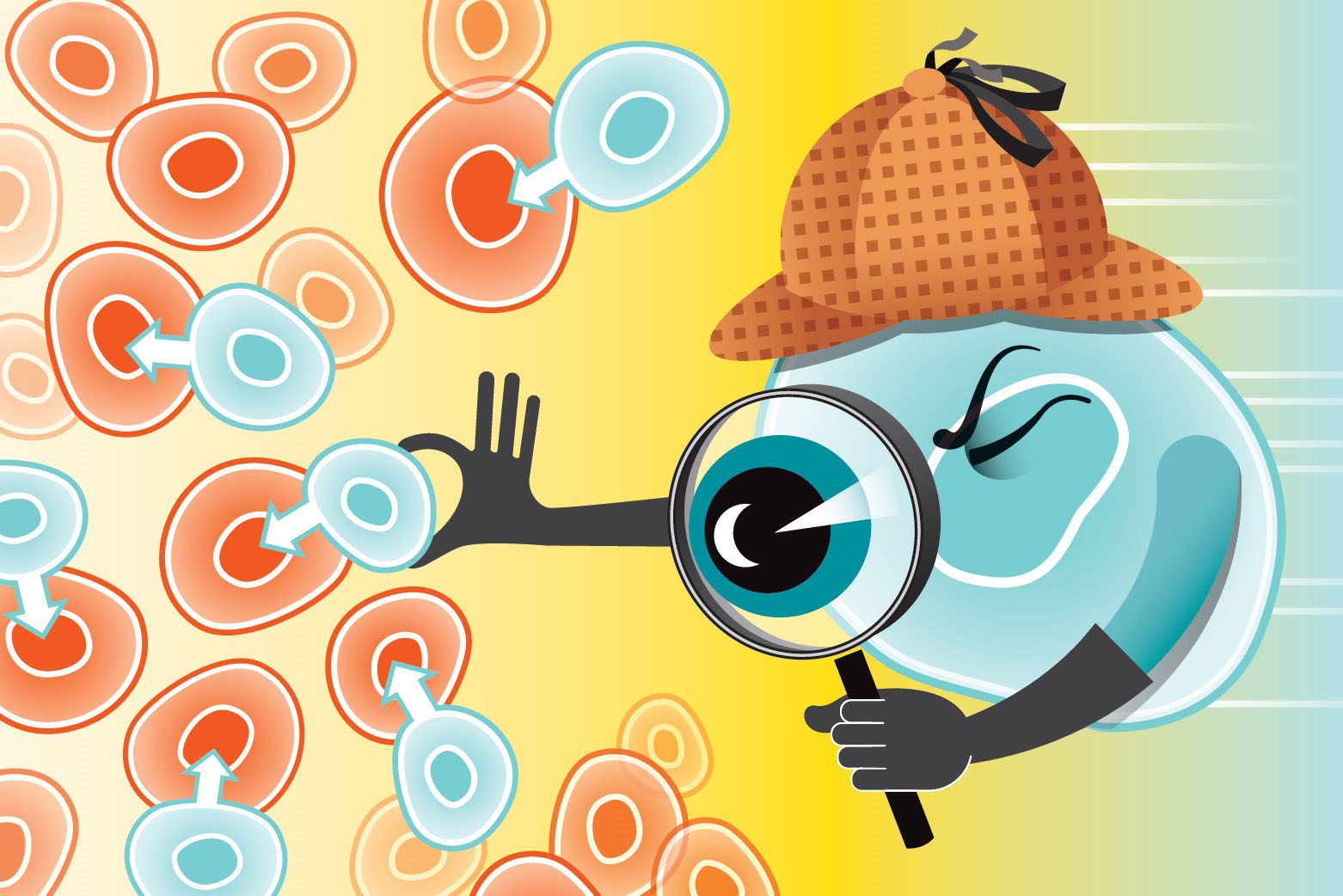
Illustration by Marcia Staimer
Cancer treatments often involve applying drugs or therapies from outside the body, but George Mason University bioengineering professor Nitin Agrawal is working on a method to treat tumors internally.
Agrawal received a $300,000 grant from the National Science Foundation to develop an anti-cancer therapy in which researchers will induce the body to grow more T-cells. Cytotoxic T-cells are white blood cells that are involved in recognizing and responding to foreign or abnormal cells.
"We are trying to make an army of these white blood cells without taking them out of the body," Agrawal said.
To do this, the researchers use liposomes, or small packets of lipids—molecules that don't readily mix with water—that can hold a desired treatment. They plan to fill those packets with the materials necessary for cell growth.
The researchers also include on the liposomes a molecule, protein or antibody that seeks out the T-cells the scientists want to expand.
Once the packets go into the bloodstream, they selectively and specifically bind only to the T-cells the researchers want to multiply. Once attached, the liposomes slowly release the encapsulated drug inside them.
Agrawal has been working on this project for a year, but the concept of using the body's own immune system to kill cancer cells has been around since the 1990s.
The liposomes offer two key benefits—they prevent unnecessary contact between the drugs and unaffected cells, and they allow the drugs, which would otherwise have a very short half-life, to remain stable within the body.
Currently, this type of therapy only works effectively on melanoma—a sometimes deadly form of skin cancer—but Agrawal hopes it will one day be a treatment option for solid tumors.
Agrawal said his grant money is being used to fund the student researchers working with him and the materials they are using.
He said the current project will include in vitro studies using cultured cells and, depending on the results of those studies, animal trials and human tests would follow.
Rohan Fernandes, a researcher with Children's National Health System who is familiar with Agrawal's work, said this research could ultimately have far-reaching effects.
"The principles explored in this project will likely have implications in not only treating cancers, but potentially infectious diseases, as well, by applying this [particular] targeting and activation platform to other cell types of the immune system," Fernandes said.
